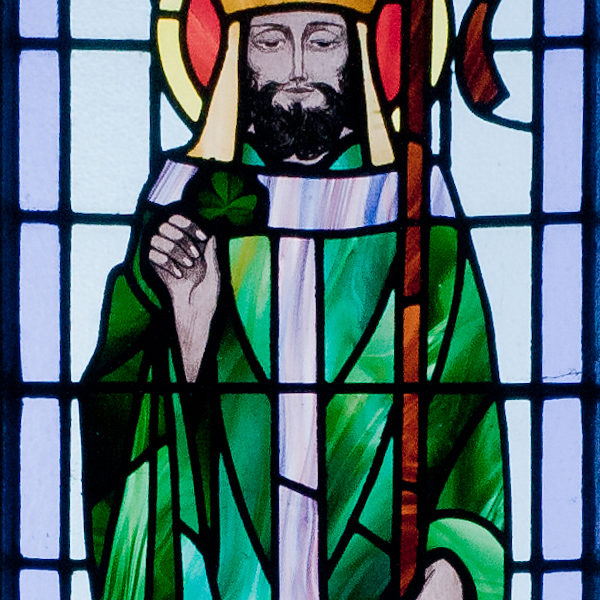
Second Sunday in Lent, Year C (3/17/2019)
Genesis 15:1-12, 17-18
Psalm 27
Philippians 3:17-4:1
Luke 13:31-35
Click the play button to listen to this week’s sermon.
Some of us, at some point, may discover the faith and fortitude necessary to follow in the footsteps of a crucified Messiah, the Mother Hen who cannot be deterred from gathering us into God’s mercy. But, we can all huddle under his wings and hold on until God finally redeems us from our crosses, both the ones we’ve chosen and the ones we haven’t.
There’s a danger in interpreting every story about Jesus as an invitation to emulate him. He’s the model of faithfulness, of course, and he calls his disciples to take up crosses of our own and follow him.[1] But too often, the church has hoisted impossible crosses onto people who already know what it means to be persecuted, humiliated, abused, and cast out. Jesus’ cross, albeit “a perversion of justice,”[2] is the anticipated result of his Spirit-led mission to bring about the kingdom of God in opposition to the kingdoms of this world. He’s not politically naïve, so he knows the likely outcome of his ministry to give life–especially to the poor and dispossessed–will be to lose his own.[3] Vested interests will not cede power willingly, but will lash out at any challenge to the status quo. That goes for Herod, the fox, as well as the Roman Emperor, to whom Herod owes his allegiance and under whose oppressive authority Jerusalem ultimately rests.
Jesus knows what his immediate future holds, nevertheless he follows through. That doesn’t mean he has to be happy about it. In response to the word of warning he receives from some Pharisees, he cries, “Jerusalem, Jerusalem, the city that kills the prophets and stones those who are sent to it!” This oration has a critical edge to it, yet it discloses Jesus’ earnest love for the city that has come to epitomize religious and political hostility: “Jerusalem, Jerusalem…. How often have I desired to gather your children together as a hen gathers her brood under her wings, and you were not willing!”
This is a heartbreaking lament. The one we will kill like the prophets before him is the one who most deeply desires to shelter and nurture us. Jesus loves the world so completely and is so zealously devoted to our redemption that no danger is too great an obstacle to the fulfillment of his purpose, not even our rejection.
Throughout the ages, disciples of Jesus have occasionally summoned the strength of faith to imitate his boldness in the face of opposition. Think of Patricius, the mysterious fifth-century apostle who is legendary for his ministry with the people of Ireland–Saint Patrick, whose festival we celebrate today. Patrick was not especially faithful in his youth, despite being the son of a deacon and the grandson of a priest. According to his autobiographical accounts, he was captured by pirates at the age of sixteen and taken from his home in Britain to Ireland as a slave. While in captivity, he worked as a shepherd, and as a result of a sort of spiritual awakening, he converted to Christianity. Six years after his capture, he escaped and returned to Britain. But a vision called him back to Ireland as a missionary, where he established a number of communities of faith, served as bishop, and ultimately became the island’s primary patron saint.
Imagine the courage and trust it must have taken to return to the place of his enslavement. As a foreigner, and on account of his refusal to accept gifts from kings, Patrick found himself outside any system of kinship or affinity. He was therefore without legal protection and subject to beatings, robbery, and imprisonment, even the threat of execution.
Although today we might criticize European Christian expansionism for its carelessness toward indigenous tradition, Patrick’s devotion to the early Christian communities in Ireland was unwavering. His strength of faith rivaled that of American heroes like Harriet Tubman and Sojourner Truth, whom we commemorated last Sunday, as well as twentieth-century martyrs like Dietrich Bonhoeffer of Germany, Oscar Romero of El Salvador, and our own Martin Luther King, Jr.
In the spirit of Jesus, these giants of the faith were so centered in their vision of God’s justice that they earned a legacy for staring down persecution in pursuit of a more just world. Like mother hens, they put themselves at risk for the sake of the brood, fully aware that they were not likely to survive a brush with the foxes of their day.
Countless faithful people, named and unnamed, have found it in themselves to walk in the way of the Mother Hen, the Messiah of the cross. But faithful people have also been subjected to crosses not of their choosing–affliction and violence on account of religion, race, gender, orientation, or other categories of identity. Their involuntary crosses may prevent them from taking further risks for the sake of faith.
The good news is that Jesus will not be deterred from gathering us all into God’s mothering mercy. Nothing will stop him from fulfilling his dream for our life together. Regardless of the hardships we endure, regardless of our fears and failures, we are his. Some of us, at some point, may discover the faith and fortitude necessary to freely confront the kind of danger he did, but we can all huddle under his wings until God finally redeems us from our crosses, both the ones we’ve chosen and the ones we haven’t.
[1] Luke 9:23.
[2] Isaiah 53:8.
[3] See Rodney Clapp, in Feasting on the Word, Year C, Vol. 2, 70.

